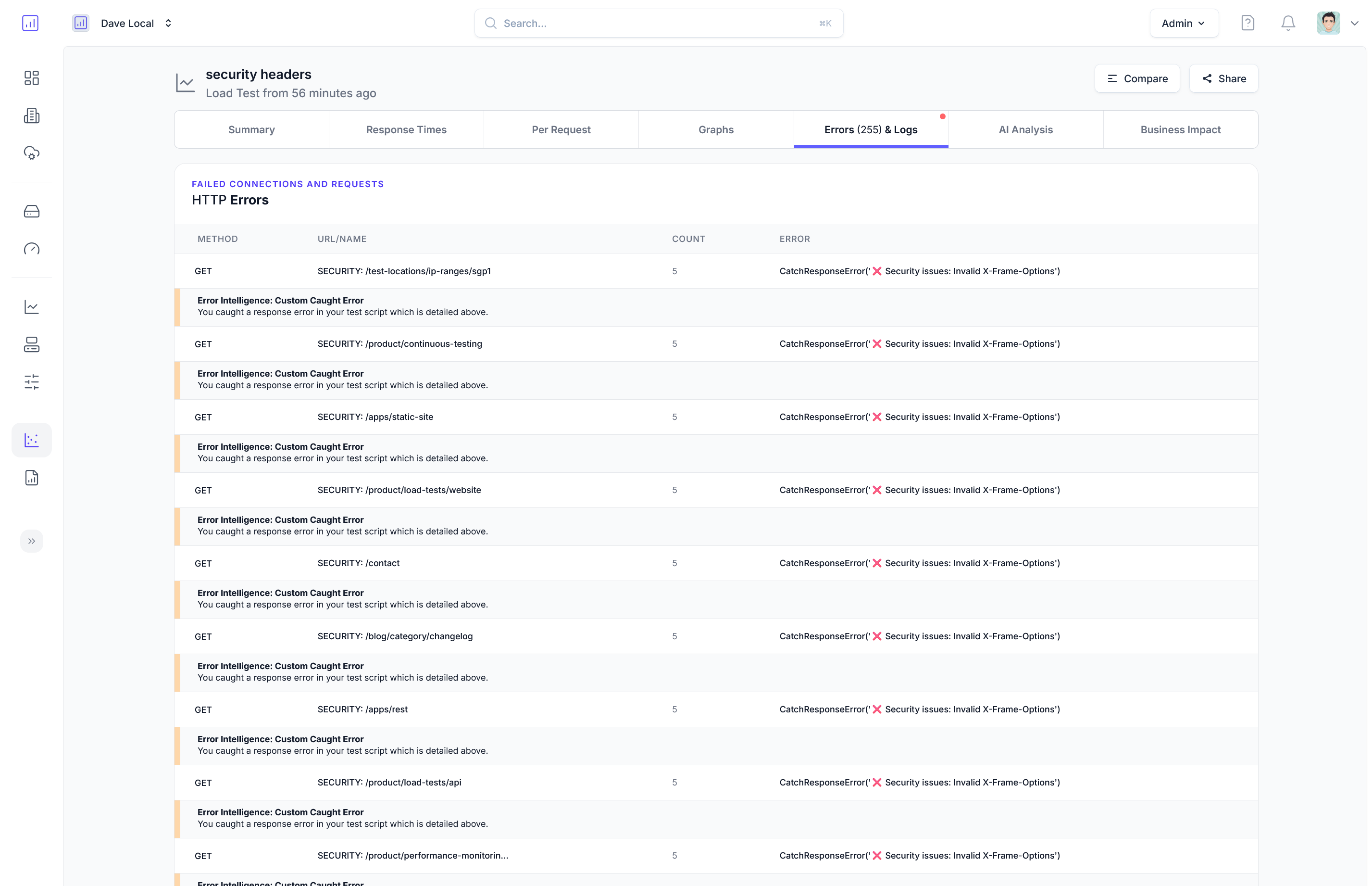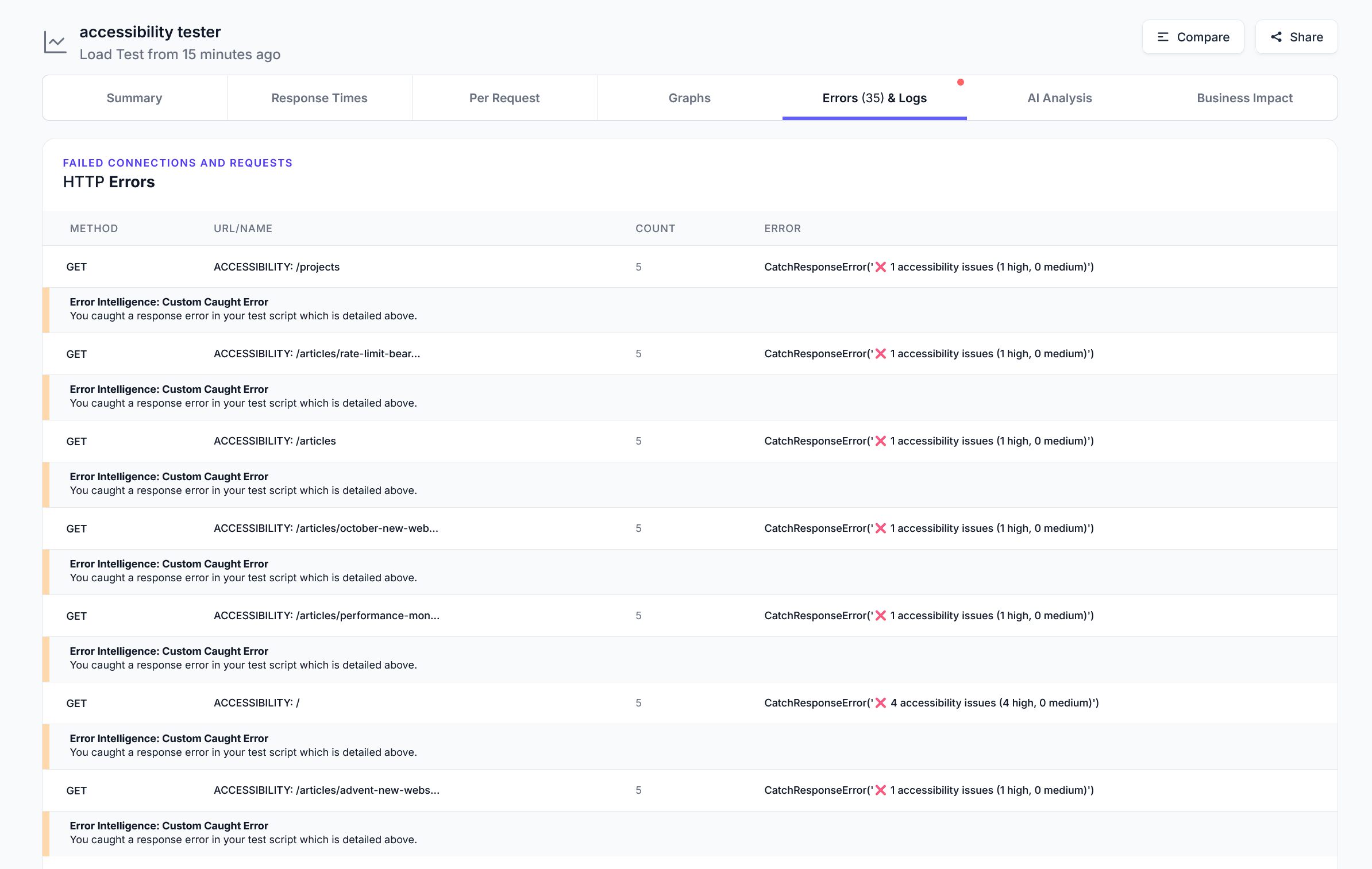
QA Series: Automated Security Headers Testing
Security header misconfigurations aren't just technical oversights—they create real vulnerabilities that expose your users to XSS attacks, clickjacking, and data breaches. But manually checking security headers across every page? That's time-consuming and error-prone at scale. LoadForge can check them all for you!

